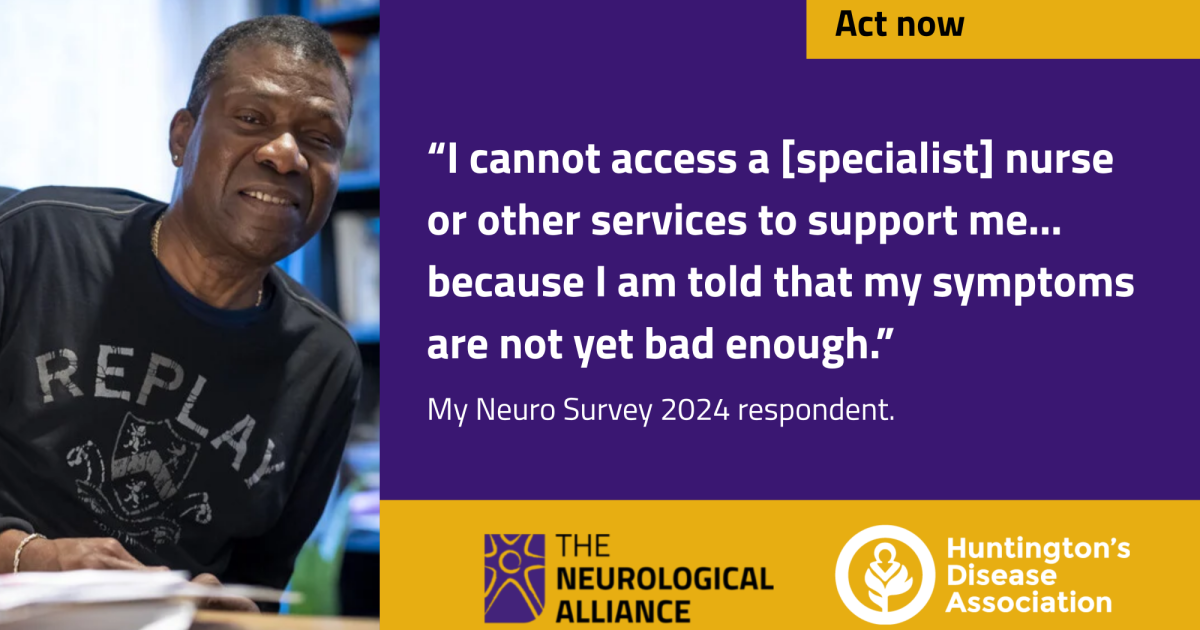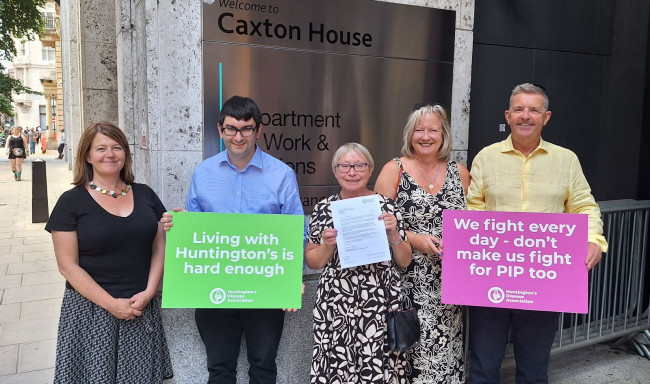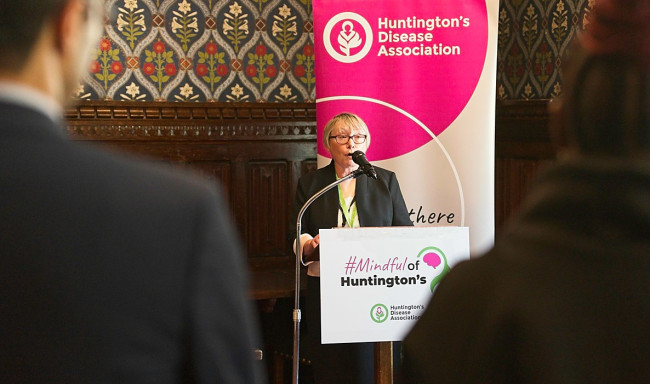Huntington's Disease Association backs urgent call to fix NHS care for people with Huntington's disease as major new survey reveals widespread gaps
People living with Huntington's disease across England are being failed by a health system that is struggling to meet even basic needs, according to new findings from My Neuro Survey — the largest patient experience survey of its kind.
Published today by The Neurological Alliance, of which we are a member, the survey reveals that just 1 in 3 respondents felt the care they receive meets their needs. The situation is especially stark when it comes to mental health support:
- 69% of people who needed neuropsychiatry services couldn’t access them
- 62% couldn’t access neuropsychology
- 48% were unable to access counselling

Despite the challenges, the survey also highlights the positive impact of good care when it is accessible. 72% of people said they felt comfortable speaking with healthcare professionals, and 57% reported that information was clearly explained.
In response, The Neurological Alliance has today launched an open letter to Secretary of State for Health and Social Care Wes Streeting, urging the Government to take urgent action for the more than 1 in 6 people living with a neurological condition in the country.
The letter is timely, given the Government will soon set out its much anticipated 10-year plan for the NHS and NHS Workforce Delivery Plan. Despite neurological conditions affecting more than 1 in 6 people, the Government has not yet committed to specific
implementation measures for people affected by neurological conditions or neurological services within these plans.
Key calls to the Secretary of State are:
- Tackle critical workforce shortages in neuroscience and associated specialties in the forthcoming workforce plan.
- Ensure the NHS 10 year plan is supported by a specific implementation plan for services for people affected by neurological conditions.
- Implement NHS guidance that seeks to ensuring no-one is turned away from mental health services due to their neurological diagnosis.
- Build a health system architecture that provides much needed clinical leadership and delivers transformation of services for people affected by neurological conditions. Draw from the extensive work undertaken within the NHS England national neuroscience transformation programme, National Neuro Advisory Group optimal clinical pathways of care and Getting It Right First Time neurology and neurosurgery programmes.
- Unlock the potential of the UK Neuro Forum by providing dedicated, time-limited government funding to support its coordination and engagement activities.
Georgina Carr, CEO of the Neurological Alliance, said:
“These findings are a stark reminder that people affected by neurological conditions are being left behind. One in six people lives with a neurological condition—yet care is too often fragmented, under-resourced, and poorly integrated. We need urgent action to tackle workforce shortages in neurology and associated specialities, deliver a dedicated implementation plan for neuro services, and ensure no one is turned away from mental health support because of their neurological diagnosis. We know what good looks like: joined-up services, empowered professionals, and meaningful partnerships with the voluntary sector. Now is the time to act—and the forthcoming NHS workforce plan and 10-year strategy must deliver for the one in six.”
Jenny McArthur, who lives with Huntington's disease said,
In a world where your consultant can say you’re an “overwhelmed woman” and not see the Huntington's disease as it is, means we still have a long way to go in the medical world, let alone the wider world, for better treatment for the 1 in 6 people with any neurological conditions.
Huntington's Disease Association is proud to be a member of The Neurological Alliance and stands with others calling for urgent action.




